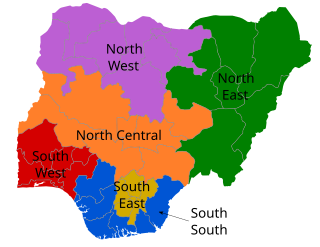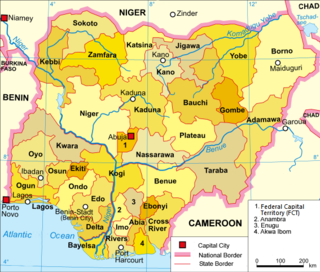Shari'a law appied in 12 States
Twelve northern states have adopted some form of Shari'a into their criminal statutes: Bauchi, Borno, Gombe, Jigawa, Kaduna, Kano, Katsina, Kebbi, Niger, Sokoto, Yobe, and Zamfara. The Shari'a criminal laws apply to those who voluntarily consent to the jurisdiction of the Shari'a courts and to all Muslims. [2] : page: 45
Meaning of sodomy
In the states of Kaduna and Yobe, "sodomy" is committed by "[w]hoever has anal coitus with any man".
In the states of Kano and Katsina, "sodomy" is committed by "[w]hoever has carnal intercourse against the order of nature with any man or woman through her rectum".
In the states of Bauchi, Gombe, Jigawa, Sokoto, and Zamfara, "sodomy" is committed by "[w]hoever has carnal intercourse against the order of nature with any man or woman". [2] : page: 69
Punishment for offense of sodomy
In the states of Gombe, Jigawa, and Zamfara, a person who commits the offence of sodomy shall be punished:
(a) with caning of one hundred lashes if unmarried, and shall also be liable to imprisonment for the term of one year; or
(b) if married with stoning to death (rajm). [2] : page: 70
In the state of Kano, a person who commits the offence of sodomy shall be punished:
(a) with caning of one hundred lashes if unmarried, and shall also be liable to imprisonment for the term of one year; or
(b) if married or has been previously married with stoning to death (rajm). [2] : page: 70
In the state of Bauchi, a person who commits the offence of sodomy "shall be punished with stoning to death (rajm) or by any other means decided by the state". [2] : page: 70
In the states of Kaduna, Katsina, Kebbi, and Yobe, a person who commits the offence of sodomy "shall be punished with stoning to death (rajm)". [2] : page: 70
In the state of Sokoto, a person who commits the offence of sodomy shall be punished:
(a) with stoning to death;
(b) if the act is committed by a minor on an adult person the adult person shall be punished by way of ta'azir which may extend to 100 lashes and minor with correctional punishment. [2] : page: 70
In Sokoto, "ta'azir" means "a discretionary punishment for offence whose punishment is not specified". [2] : page: 53
Meaning of lesbianism
In the states of Bauchi, Gombe, Jigawa, Kaduna, Kano, Katsina, Kebbi, Sokoto, Yobe, and Zamfara, lesbianism is committed by "[w]hoever, being a woman, engages another woman in carnal intercourse through her sexual organ or by means of stimulation or sexual excitement of one another." Bauchi, Jigawa, Katsina, Kebbi, Sokoto, Yobe and Zamfara states include the following official explanation: "The offence is committed by the unnatural fusion of the female sexual organs and/or by the use of natural or artificial means to stimulate or attain sexual satisfaction or excitement." [2] : page: 71
Punishment for offence of lesbianism
In the states of Gombe, Jigawa, Kebbi, Sokoto, Yobe, and Zamfara, a person who commits the offence of lesbianism "shall be punished with caning which may extend to fifty lashes and in addition be sentenced to a term of imprisonment which may extend to six months". [2] : page: 71
In the state of Bauchi, Borno, a person who commits the offence of lesbianism "shall be punished with caning which may extend to fifty lashes and in addition be sentenced to a term of imprisonment which may extend to up to five years". [2] : page: 71
In the state of Kaduna, the punishment for committing the offence of lesbianism is ta'azir, which means "any punishment not provided for by way of hadd or qisas". [2] : page: 53 "Hadd" means "punishment that is fixed by Islamic law". [2] : page: 54 "Qisas" includes "punishments inflicted upon offenders by way of retaliation for causing death/injuries to a person". [2] : page: 54
In the states of Kano and Katsina, the punishment for committing the offence of lesbianism is stoning to death. [2] : page: 71
Meaning of gross indecency
In the state of Kaduna, a person commits an act of gross indecency "in public, exposure of nakedness in public and other related acts of similar nature capable of corrupting public morals".
In the states of Kano and Katsina,Borno a person commits an act of gross indency "by way of kissing in public, exposure of nakedness in public and other related acts of similar nature in order to corrupt public morals".
In the state of Gombe, a person commits an act of gross indecency by committing "any sexual offence against the normal or usual standards of behaviour".
The states of Bauchi, Jigawa, Kebbi, Sokoto, Yobe, and Zamfara do not define gross indecency. Their laws instead say: "Whoever commits an act of gross indecency upon the person of another without his consent or by the use of force or threat compels a person to join with him in the commission of such act shall be punished". [2] : page: 71
Punishment for offence of gross indecency
A person who commits the offence of gross indecency "shall be punished with caning which may extend to forty lashes and may be liable to imprisonment for a term not exceeding one year and may also be liable to fine".
In the state of Bauchi, a person who commits the offence of gross indecency "shall be punished with caning which may extend to forty lashes and may be liable to imprisonment for a term not exceeding seven years and may also be liable to fine".
In the state of Kaduna, the punishment for committing the offence of gross indecency is ta'azir, which means "any punishment not provided for by way of hadd or qisas". [2] : page: 53 "Hadd" means "punishment that is fixed by Islamic law". [2] : page: 54 "Qisas" includes "punishments inflicted upon offenders by way of retaliation for causing death/injuries to a person". [2] : page: 54
In the state of Sokoto, a person who commits the offence of gross indecency "shall be punished with caning which may extend to forty lashes or may be liable to imprisonment for a term not exceeding one year, or both, and may also be liable to fine". [2] : page: 71
Meanings of vagabond and incorrigible vagabond
In the states of Bauchi, Gombe, Jigawa, Kaduna, Kano, Katsina, Kebbi, Sokoto, Yobe, and Zamfara, "any male person who dresses or is attired in the fashion of a woman in a public place or who practises sodomy as a means of livelihood or as a profession" is a vagabond. [2] : page: 127
In the states of Kano and Katsina, "any female person who dresses or is attired in the fashion of a man in a public place" is a vagabond. [2] : page: 127
In the states of Bauchi, Gombe, Jigawa, Kaduna, Kano, Katsina, Kebbi, Sokoto, Yobe, and Zamfara, an "incorrigible vagabond" is "any person who after being convicted as a vagabond commits any of the offences which will render him liable to be convicted as such again". [2] : page: 127
Punishment for being a vagabond or incorrigible vagabond
In the states of Bauchi, Gombe, Jigawa, Katsina, Kebbi, Sokoto, Yobe, and Zamfara, "[w}hoever is convicted as being a vagabond shall be punished with imprisonment for a term which may extend to one year and shall be liable to caning which may extend to thirty lashes". [2] : page: 127
In the state of Kano, "[w}hoever is convicted as being a vagabond shall be punished with imprisonment for a term which may extend to eight months and shall be liable to caning which may extend to thirty-five lashes". [2] : page: 127
In the state of Kaduna, the punishment for being convicted as a vagabond is ta'azir, [2] : page: 127 which means "any punishment not provided for by way of hadd or qisas". [2] : page: 53 "Hadd" means "punishment that is fixed by Islamic law". [2] : page: 54 "Qisas" includes "punishments inflicted upon offenders by way of retaliation for causing death/injuries to a person". [2] : page: 54
In the states of Gombe, Jigawa, Katsina, Kebbi, Sokoto, Yobe, and Zamfara, "[w]hoever is convicted as being an incorrigible vagabond shall be punished with imprisonment for a term which may extend to two years and shall be liable to caning which may extend to fifty lashes". [2] : page: 128
In the state of Bauchi, "[w]hoever is convicted as being an incorrigible vagabond shall be punished with imprisonment for a term which may extend to two years and shall be liable to caning which may extend to forty lashes". [2] : page: 129
In the state of Kano, "[w]hoever is convicted as being an incorrigible vagabond shall be punished with imprisonment for a term which may extend to one year and shall be liable to caning which may extend to fifty lashes". [2] : page: 129
In the state of Kaduna, the punishment for being convicted as an incorrigible vagabond is ta'azir. [2] : page: 129






